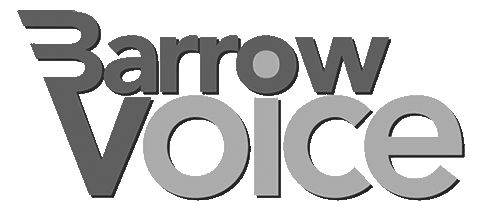

Summer: a time of joy, relaxation and celebration for many of us. The summer of 2021 will be memorable in many ways: from Covid-19 to England being a penalty shoot-out away from bringing football home. But what about the weather?
In mid-July we experienced extreme temperatures. On 19th July the Met Office issued its first ever ‘Amber Extreme Heat Warning’ as temperatures exceeded 30o C across large parts of the UK. In Barrow we all experienced the sweltering heat (and, if you’re anything like me, probably some sleepless nights!).
Sadly, as someone who has studied meteorology and climate and who passionately works in the area of environment and sustainability, I am aware that such extremes of weather are likely to become more frequent and even more extreme as a consequence of human-induced climate change. It served as a timely reminder for me that climate change is impacting us all now, even in Barrow.
But is all hope lost? Is there anything we can do? Of course! There are many things we can do and, ironically, we can make use of something that played a part in the heatwave in July – the sun and its solar power.
A big contributing impact on our climate comes from using fossil fuels like coal and oil to heat our homes. These release carbon dioxide (CO2) and accelerate global warming. Solar power, on the other hand, is a renewable and ‘green’ form of generating electricity by using power from the sun without directly generating greenhouse gas emissions. The good news for Britain is, that it doesn’t actually need a lot of sun.
Solar farms are popping up all around the country. Around Barrow we have the Gypsum solar farm in Sileby near to the Barrow British Gypsum Plaster Plant. There has also been a planning application submitted for a solar farm north of Flesh Hovel Lane. These solar farms are playing a part in providing renewable electricity to our homes. So, one simple action that we can all take to help fight climate change is to ensure that our electricity comes from renewable energy suppliers or use a 100% renewable electricity tariff (and you may find it is cheaper, too).
During my Covid-time off work, on furlough, I began to reflect that nothing is more important to me than family and friends and living a happy, healthy life. But I also realised that my actions and lifestyle choices did not reflect this. I was driving a diesel car for work and to the local shop, guzzling fuel and emitting air pollutants. I was regularly eating meats such as beef, which emit a tremendous amount of carbon during their production. I had done nothing to improve the energy efficiency of our house in Barrow which my wife and I call home. I spent my time researching and reading into what I could do to change.
One suggestion that caught my interest was to install solar panels to generate and use our own electricity to power our home and, potentially, an electric vehicle. Initially, I wasn’t sure if this was feasible, but the more I looked into it, the more it made sense. The first thing we did was to get contact a local installer of solar panels for some advice. This was tremendously useful as, even for someone who works in environment and sustainability, I still had so much to learn. Solar panels, were more realistic and within our budget than we had imagined.
We sold our diesel car and used the proceeds to partially fund the installation of solar panels and a Zappi electric vehicle charger (specifically designed to work with the solar panel system that we had installed) to charge our new electric vehicle. In fact, this brought down the cost of the installation by approximately 60% and the investment in the solar panels itself has an estimated payback of approximately seven years. Installation was so quick, we had solar panels on our roof before we knew it!
During the day we plug in our electric vehicle and use the solar panels to charge the car for free, with clean energy from the sun! This has not only reduced our carbon footprint, but also our fuel costs. I have to say so far, I have not missed visiting a petrol station!
Another big plus is that we can sell any unused electricity back into the national grid. So, we make money out of it too. In the first two months we earned £78.14. Not bad, eh?
The main downside to our solar panels currently is that, of course, it only provides electricity during the day, so we currently do not benefit from green, clean energy at night, perhaps when it is most needed. There is however a solution. You can purchase batteries to store the solar energy to use at night. Currently, batteries are expensive, but the costs are coming down all the time.
At one time, I never thought that we would be generating and using our own free, green electricity but it has turned out to be an excellent investment. Not only is it benefiting us financially but, perhaps more importantly, we are contributing to a lower carbon world and a better future for us, our family and friends with the help of the power of light.
If you would like to learn more about our experience with solar panels and electric vehicles, then I would be happy to help. Please email the editor@barrowvoice.co.uk Have a look at Barrow Voice adverts from Bradgate Electrical Services (page 2) and Mitton Electrical (page 12) - both local companies install solar panels.
Luke Menzal